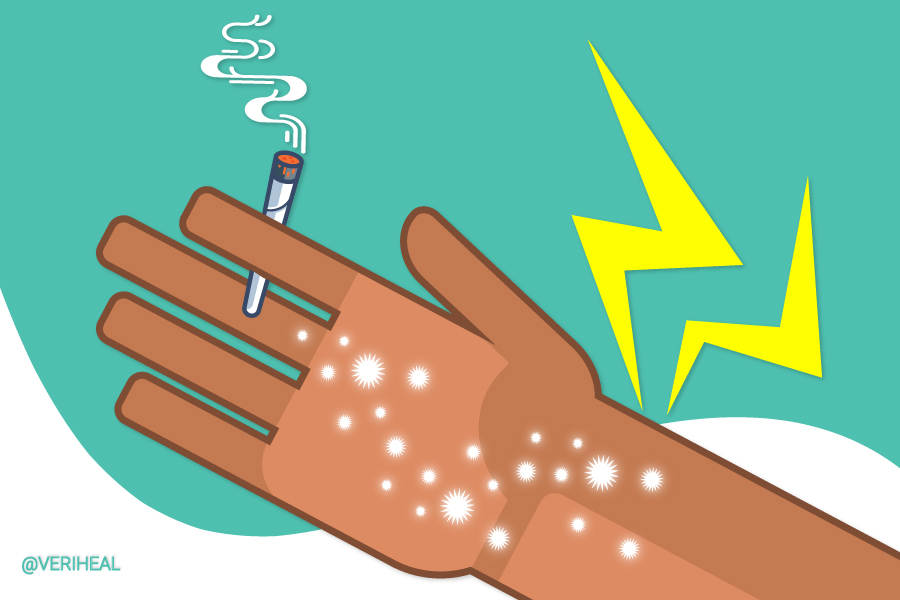During the COVID-19 induced lockdown, I had the strangest revelation about my hands as I was reading an article I came across on my feed about technology leading to the rise in Carpal Tunnel Syndrome cases. During the read, I came to realize that I have been relying on my hands for work, but that I never take time out to care for and appreciate them. It may sound strange but just like any part of the body, it has muscles and joints which need to be stretched and looked after, especially if you’re like me…who spends a lot of time typing behind a screen. If we were to continue relying on our hands and taking them for granted, we could end up with conditions such as carpal tunnel syndrome.
What is Carpal Tunnel Syndrome?
A carpal tunnel is a narrow passageway that is surrounded by bones and ligaments on the palm-side of the hand. When pressure is applied to the median nerve, which runs from the forearm into the palm-side of the hand, one develops what is known as carpal tunnel syndrome. When the median nerve receives pressure, it can cause the nerve to become compressed which is then accompanied by aggravating symptoms.
Symptoms:
The symptoms of carpal tunnel syndrome have been known to develop gradually and include the following symptoms:
- Tingling: The tingling may feel like an electric shock in the thumb, index, middle or ring fingers but will not be felt in the pinky finger (the little finger). Tingling and numbness can both travel from the fingers to the writs and into the arm.
- Numbness: The Mayo Clinic explains that many with this syndrome try to “shake out” their hands to alleviate the symptoms but that the numbness may become constant over time. Similar to the tingling, the numbness usually does not affect the pinky and it can travel.
- Weakness: This symptom can lead to dropping objects as well as experiencing weakness in the writs and hands which can impact the ability to do certain tasks.
- Pain: The pain spreads from the fingers to the wrist too and can often be seemingly unbearable.
The symptoms may be aggravated in the evening or while doing things such as driving. Proper treatment should alleviate the tingling, numbness, and function in the hands and writs. Conventional treatment has been relatively effective but at the cost of side-effects such as weight gain, bruising, and becomes easily tolerant of the pain-killers, which could lead to narcotic use and/or addiction.
Why You Should Get Your Medical Marijuana Card
Veriheal has satisfied millions of patients nationwide by giving them access to these benefits
- Larger purchase limits
- Peace of mind
- Enhanced legal protection
- Access to higher potency strains
- Save up to 25% on cannabis purchases
- Skip the line at the dispensary
Risk Factors of Carpal Tunnel Syndrome
The following may not be the direct cause of carpal tunnel syndrome but they have been associated with the condition and increases the risk of damage to the median nerve.
- Repetitive actions involve flexing the wrist, especially if the conditions are cold. This includes typing, drawing, using a mouse, throwing a ball, or using vibrating tools.
- A wrist fracture or dislocation.
- Arthritis that causes deformation in the small bones in the wrist.
- Biologically having smaller carpal tunnels- which also puts women at the most at risk.
- Diabetes and other nerve-damaging conditions.
- Inflammatory conditions that affect the lining around the tendons of your wrist.
- Medications such as Arimidex.
- Medical conditions such as pregnancy, menopause, thyroid disorder, kidney failure, and lymphedema.
Using Cannabis to Help Treat Carpal Tunnel
For those suffering from the pain, numbness, and tingling which accompanies carpal tunnel syndrome, cannabis can be an effective treatment option, especially if you are wary of the side-effects and effectiveness of conventional pharmaceutical medications.
Cannabis can act as an all-natural anti-inflammatory and it can reduce the associated pain with minimal risk of side-effects. If one were to experience side effects, the ones associated with cannabis are non-lethal, are far less severe than those of conventional medication and they go away within a few hours after consumption. The side effects include feeling sleepy, hungry, couch-locked, dry-mouth, and if you consumed too much, anxiety.
Far outweighing the possible side-effects are the much more prominent benefits. Cannabis can target the following carpal tunnel syndrome-related symptoms:
A study conducted by Henry McQuay that was published in the Canadian Medical Association Journal found that cannabis is significantly effective in helping reduce neuropathic pain. While two separate studies, one conducted in the UK and the other one conducted in China, found that cannabis was effective as an anti-inflammatory relieving agent, which means that individuals with carpal tunnel syndrome could benefit from the same. However, there is not enough research on cannabis for carpal tunnel syndrome specifically, but there is plenty of research on cannabis for the syndrome-related symptoms.
Author, Share & Comments
















